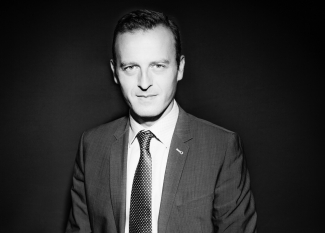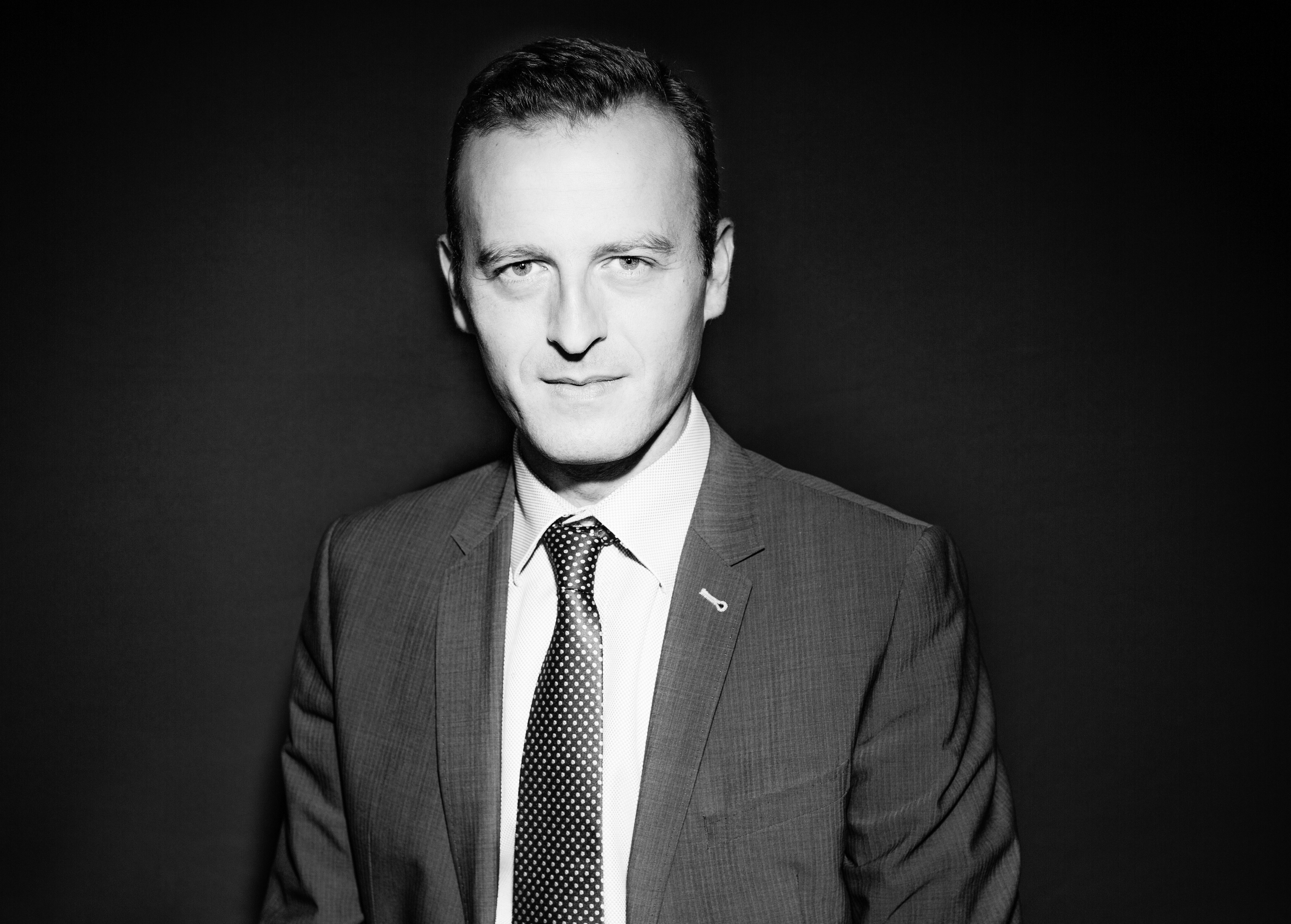Thomas Gomart, director of the French Institute of International Relations: 'Trump reasserts the US' strategic centrality'
By bombing Iran alongside Israel, Donald Trump has performed a show of force aimed at China and Russia, explains the director of the French Institute of International Relations in an interview.

Historian and director of the French Institute of International Relations (IFRI), Thomas Gomart has explored the contemporary world's geopolitical risks and French diplomacy through his research. He has authored numerous books, including L'Accélération de l'histoire. Les nœuds géostratégiques d'un monde hors de contrôle ("The Acceleration of History: The Geostrategic Nodes of a World out of Control") and Les Ambitions inavouées. Ce que préparent les grandes puissances ("Unspoken Ambitions: What the Great Powers are preparing"). In this interview with Le Monde, he reflects on the United States' bombings of Iranian nuclear sites, conducted alongside Israel, and on the ceasefire that Washington is now trying to impose.
With its strikes, known as Operation Midnight Hammer, has the US restored the credibility of its deterrence, as it has claimed?
It must be acknowledged that Donald Trump has an undeniable sense for catching people off guard. In the summer of 2021, Joe Biden withdrew American troops from Afghanistan in a hasty manner, leading to a strategic setback for the West, which was, notably, exploited by Iran and its "axis of resistance," as well as by Russia and its "special military operation" in Ukraine [launched in February 2022]. Four years later, Trump bombed Iran in Israel's wake, against all expectations. In doing so, the MAGA ["Make America Great Again"] rhetoric of military non-intervention has shifted toward the line held by neoconservatives, for whom the preemptive use of force is the surest means of domination. Deterrence consists of rhetoric and capacity, but, above all, it is a willingness to act. In this sense, Trump reasserts the US's strategic centrality.
Is this the return of US hyperpower in the Middle East, and even beyond, or is that a false impression?
I would qualify that because Trump is also the man who failed to impose his views in Gaza or Ukraine. As early as June 23, he announced a ceasefire in Iran, but is he in a position to enforce it over the long term? In my view, the true driver of transformations in the Middle East is Benjamin Netanyahu. Whatever one thinks of the Israeli prime minister, it must be recognized that he showed exceptional skill in getting the president of the US to do the exact opposite of what he was planning to do: bomb rather than negotiate. Since 1979, the Islamic Republic of Iran has made a major strategic miscalculation, that of trying to indirectly compete with the US, while it was fundamentally still a regional power. It had hoped to escape this status through nuclear capability. Now, it pays the price for its ambitions and its regime's rigidity.
What message is Trump thereby sending to Russian President Vladimir Putin?
Barack Obama had humiliated him by calling Russia a "regional power." With Trump, it is the exact opposite: He has aligned his rhetoric with the Kremlin's by abandoning Ukraine. However, he does send him the following message: The effectiveness of American-Israeli military action in Iran has nothing to do with the Russian-Iranian ineffectiveness in Ukraine. Control of shared spaces (the skies and targets) is forcing Russia to face its operational archaism and human losses.
And what about his message for Chinese President Xi Jinping?
China, unlike the US, remains dependent on energy supplies from the region. The message is, therefore, one of a show of force. Beijing had, moreover, invested considerable effort in securing a normalization of relations between Iran and Saudi Arabia in 2023. Faced with the US president, who acts both commercially and militarily, Xi Jinping must constantly recalculate the balance of power, all while also highlighting how little regard he has for international law.
Does Trump aspire to be both a war leader and a peacemaker?
Above all, Trump wants to have the Nobel Peace Prize and to be the richest man in the world. On the budgetary front, the US is showing signs of structural military disengagement, notably from Europe. Trump has repeatedly expressed his opposition to war, which is widely supported by his electoral base. He declared a ceasefire so quickly to stay within the framework of an operation he wants to be definitive. Yet while one knows when a war begins, one does not know when it will end. As a reminder, George W. Bush declared the mission accomplished in May 2003, six weeks after the start of strikes on Saddam Hussein's Iraq. We know what happened next.
What could be the effects for Europeans?
They are on the front line, but marginalized. Their societies are increasingly affected, even divided, by the expansion of the Israel-Palestine conflict. Some of them have, even recently, fallen victim to the historic hostility of the Islamic Republic of Iran [two French hostages, Cécile Kohler and Jacques Paris, are still detained in Iran]. Furthermore, Tehran supports Russia in its war effort in Ukraine, which remains the center of gravity for European security. Yet, the Europeans seem to be choosing unpreparedness – industrial, military and civil – in the face of Russia, despite Trump's changed stance and the situation on the ground.
In February, Israel, the US and Hungary voted with Russia against a resolution presented by Ukraine at the United Nations General Assembly. This is a diplomatic rift, one whose logical consequences Europeans have failed to grasp: faced with Moscow, they may find themselves left alone sooner than expected. Abandoning Ukraine to its fate speeds up this trend. While Israel bombs Iran, Russia bombs Ukraine. Trump supplies arms to Jerusalem, but no longer to Kyiv. Europeans suffer the consequences.
Does this new situation weigh on NATO?
Trump's attitude at the last G7 [in mid-June] stunned the Europeans, who worked hard not to provoke him at the summit in The Hague [which was held on June 24 and 25]. To that end, they announced increases in military spending, fully aware that some of them are financially unable to meet these commitments. European policy now amounts to bowing down in an effort to maintain, at all costs, an American military presence that can serve as a sufficient deterrent. Let us recall, in parallel, that Russia, Germany and France jointly opposed the British-American intervention in Iraq in 2003, which deeply divided the European Union ahead of its enlargement to countries aligned with Washington. That 2003 incident has become the superego of French diplomacy, which has never recovered from having been right, yet without being able to change the course of events.
Since then, Paris has used the Iran case to give substance to European policy through the E3 format (comprising Paris, London and Berlin) and to draw closer to Washington, up until Trump's first election. The G7 summit in Biarritz, in 2019, is still remembered, as is the European attempt at mediation between the US president and Iran.
However, this reference to 2003 is misleading, as France intervened in Libya in 2011. Besides Iran, Russia also supported Bashar al-Assad in Syria, yet did not prevent his downfall. As for Germany, the war in Ukraine has revealed its energy dependence on Moscow and the state of its military. Europeans hope for the continuation of American protection against Russia and for the end of the war in Ukraine, so as to return to a kind of strategic normality. They may end up with neither.
Can European countries, and particularly France, which has been deeply involved in efforts to secure a nuclear deal with Iran since 2003, still play a role?
Europeans have always upheld the principle of negotiations with Iran involving the US, China and Russia. They have developed unique expertise on this issue and concluded the Vienna agreement in 2015, a remarkable diplomatic accomplishment. In hindsight, we see the consequences of Trump's decision to withdraw from the agreement during his first term, under encouragement from Netanyahu, who has always opposed the negotiation. [Former French president] Nicolas Sarkozy declared in 2008 that he wanted to avoid the "catastrophic alternative": "The Iranian bomb or the bombing of Iran." Seventeen years on, it is not certain that the bombing of Iran means the end of the Iranian bomb.
Will this American show of force further widen the rift between the West and the rest of the world?
This opposition seems to me to be simplified and misleading. Trump's West means contempt for Europeans and following Israel's lead. As for the Global South, it wallows, like the West, in double standards: It is a "transactional South," which is still largely wedded to unilateral logic. In 2024, Iran joined the BRICS+ group, among which China keeps its distance from the others. India is emerging from its confrontation with Pakistan four years after clashes with China. Russia seeks to subjugate Ukraine. Brazil and South Africa have not emerged on a strategic level. Immensely wealthy, Saudi Arabia and the Emirates cannot guarantee their own security by themselves. Egypt and Ethiopia are becoming more fragile. Iran now finds itself very isolated. Its "axis of resistance" has collapsed. In reality, the joint Israeli-American military action has further fragmented the international stage.
>> Read the article on Le Monde's website.

Media:
Reporter(s):
Format
Share






